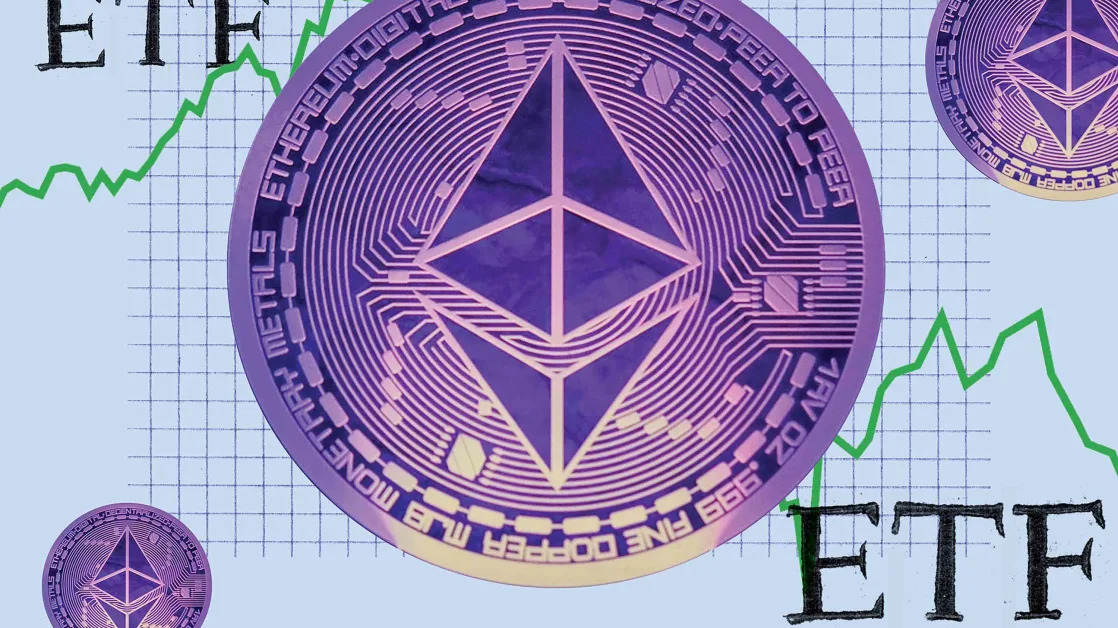-
Urbit, an idiosyncratic and audacious project to rebuild the entire internet computing stack from scratch, brought back controversial founder Curtis Yarvin after a five-year hiatus. He holds no formal title but is taking the lead on strategy.
-
The board of the Urbit Foundation, the nonprofit that steers core development, fired executive director Josh Lehman. Christopher Colby is filling the role on an interim basis while the board seeks a permanent replacement.
-
The foundation is running out of money. A fundraising proposal backed by Lehman to create a new layer-2 blockchain on top of Ethereum has been scrapped in favor of Yarvin's strategy, which involves creating a utility token, possibly on Base, Coinbase's layer-2 network.
By all accounts, Urbit has been struggling.
The Urbit Foundation, the nonprofit that steers development of the 22-year-old moonshot software project that aims to rebuild the internet from scratch, is running out of money, with a runway measurable in months. Last year saw a "mass exodus" of startups and developers from the decentralized ecosystem, as William Ball, one of the foundation's three board members, put it on a call with developers Thursday.
The user experience on the network remains clunky, which is part of Urbit's charm but not a sustainable situation for a project that wants to replace something with broad, mainstream appeal like the internet. The price of a star, the second-largest unit of digital real estate on the network, has fallen to a little over $1,000 from a peak of about $27,000 in late 2021, according to Dune Analytics data .
Last week, the Urbit board decided to make drastic changes.
It sacked Josh Lehman, the foundation's executive director since 2021, and replaced him, on an interim basis, with Christopher Colby, founder of a prediction market startup called Alphabet. The board also scrapped a fundraising proposal, backed by Lehman, to create a new layer-2 blockchain on top of Ethereum (using a software development kit from the Cosmos ecosystem).
Most shockingly to Urbit devotees and outsiders alike, the board welcomed back Curtis Yarvin, the project's founder, who left in 2019. Yarvin is best known for his unorthodox political writings – a bit more on those later. ( Just a bit , promise.) He holds no formal position at the foundation but will take the lead on strategy, he said.
"We don't give a [expletive] about titles," Yarvin, who rarely speaks to journalists, told CoinDesk in an interview. "We're here to fix this."
The shakeup rattled some of the Urbit community's leading lights. Several quit the foundation, including Chief Technology Officer Ted Blackman and senior software engineer Liam Fitzgerald.
Blackman emphasized that while he no longer works for the nonprofit, he plans to continue to work on Urbit, unpaid, as an open-source developer, and will start an unrelated consulting business to pay his bills.
"The core developers of Urbit, most of them, including me, are committed to continuing to work on the operating system, no matter whether we're getting paid or not," Blackman told CoinDesk. "Rumors of Urbit's death have been exaggerated."
Fitzgerald, who expressed frustration at the haphazard way in which the board communicated the changes, sounded less enthusiastic than Blackman but wouldn't rule out continuing to work on Urbit outside the foundation. "It's a possible direction," he said.
Yarvin indicated he is trying to do damage control. "There's a bunch of ruffled feathers out there," he said in the interview. "We're in the process of unruffling them."
Nevertheless, he cautioned on Thursday's marathon, hours-long call with developers that inevitably, some proverbial eggs may have to be broken .
"We have to fix this now ," he told colleagues. "That's going to reduce the ability to do it collegially."
Will Ball and Curtis Yarvin address the Urbit community pic.twitter.com/8xvyVg5Ntu
— Shadowy Super-Coder (@master_malwyl) August 16, 2024
Late Tuesday, Ball told CoinDesk the foundation would retain 50% of its staff. "Morale is much higher now," he said.
What happened to Urbit?
In an oversimplified description, Urbit is a decentralized network of "personal servers." Its lofty – perhaps quixotic – aim is to restore sovereignty to internet users, who have become dependent on giant, politicized platforms like Facebook and Google to host their data.
Underscoring the ambition of the endeavor, Urbit has its own programming languages (Nock and Hoon), its own operating system (called Arvo) and its own identity system (Azimuth). It is a very weird system, right down to the naming convention: this reporter's planet, or digital identity on the network, is ~fodrex-malmev. Enthusiasts have embraced its eccentricity, calling themselves " Martians ."
At the moment, the network is mostly used for direct messaging, group chats and, well, developing Urbit. But the big idea is that eventually, everything that is done on the internet could happen on Urbit.
A veteran of Silicon Valley's high-flying dotcom era , Yarvin started working on Urbit in 2002. In 2013, he founded a company named Tlon (after a Jorge Luis Borges story ) to develop the software. Yarvin left Tlon in 2019, but retained significant ownership of the namespace, or digital real estate, on the network.
By 2022, despite (or maybe in part because of) its esotericism, Urbit had attracted nontrivial investment capital, startups, developers – and buzz . The foundation had been formed to take over core development from Tlon, which shifted to product development. Writers and artists came to Assembly, the community's annual conference, to speak alongside the techies.
The vibes were beautiful . And in Yarvin's analysis, that's when the Urbit community began to stumble.
"A lot of the flattery went to everybody's head," he told CoinDesk. "We kind of wound up pretending, not only to others, but to ourselves" that the system was more mature than it was.
Urbit had sat out the initial coin offering bonanza of 2017-2018, so it has never had a huge war chest. Nevertheless, in Yarvin's telling, the project fell into a similar trap as many cryptocurrency teams.
"We sort of put a lot of energy into building an ecosystem, under the premise that we were ready to build an ecosystem – there's no real way to go back on that," Yarvin said. "The result was a lot of dead code and a lot of disappointed people."
Lehman, the former executive director, said one challenge was that the foundation funded core development by selling "galaxies," the largest unit of address space on the network, to venture capital investors. (Galaxies are made up of stars, which in turn contain individual IDs called planets.)
"The hard thing about being effectively venture-funded is that venture [capital] wants to see growth," Lehman told CoinDesk. "As the group driving core development, we're pretty cut off from levers that drive growth. That depends on product companies, and a lot of those companies were leaving" the ecosystem.
One such company is Kinode (formerly Uqbar), which is trying to build a similar peer-to-peer computing infrastructure with a more traditional software stack, including the Rust programming language.
"We realized over time that the software that was Urbit was just not going to deliver," said Ben McCormick, a consultant at Kinode. "A lot of other people were like, 'What if somebody made Urbit, but normal?' And so we ended up just kind of doing that."
Yarvin was quick to praise Lehman, but said his management style was better suited to a mature organization than a fledgling endeavor that should always assume it's fighting for its life, no matter how much money it's raised.
"Josh is an excellent peacetime CEO," Yarvin said. But the Urbit project is "still a startup. We're still default-dead, and we're gonna die if we can't make this completely real. And making it completely real is absolutely the goal. … For that, you need a wartime CEO."
Like Blackman, Lehman said he intends to continue working on Urbit.
"A lot of people are very motivated to keep doing it," he said. "I am, too."
What's next for Urbit?
When asked how he plans to get more runway for the foundation, Yarvin answered: "We have to have something that's investable, and we're doing that very fast. … Having a project that people love and basically fixing the tokenomics and taking them seriously is definitely going to be adequate."
Part of his turnaround strategy is to accelerate Urbit's growth as an identity system and social network without waiting for the inevitably slower development of the operating system.
In a draft X (formerly Twitter) thread shared with CoinDesk, Yarvin suggests that Urbit identities could, in the near term, work as a decentralized single-sign-on for websites, similar to the Ethereum Name Service (ENS). A key difference is that whereas there is an infinite supply of ENS handles, and they must be renewed every few years, Urbit identities are scarce and users own rather than lease them, he argues.
Users would still have the option of using decentralized servers that run on the Arvo operating system if they want, but this would no longer be a requirement to be "on Urbit."
"Urbit as a society is the people who interact as their Urbit identities," Yarvin said in the interview. "Growing that society basically means attracting people into this world. It doesn't mean any specific technical thing."
Partly to facilitate the social network's expansion, and also to repair the address space market, the foundation will make changes to Azimuth, the Ethereum smart contract that acts as the sort of county clerk for Urbit.
Azimuth started on the main Ethereum network, but this became an expensive way to track namespace ownership when gas, or on-chain computation fees, surged during the 2020-2021 crypto bull market.
To address that problem, Azimuth got its own L2, a "naive rollup ," in 2021. This carried its own disadvantages. A planet, or user identity, issued from the rollup layer cannot be registered on the main Ethereum chain. (Imagine signing over the deed to a house but having no way to notify the county clerk.)
Instead of Lehman's plan to create yet another Ethereum L2, Yarvin has proposed to move Azimuth to an existing one. While he said the team is making no commitments, they are leaning toward Base, the network developed by crypto exchange powerhouse Coinbase that is known for its low fees.
Wherever it ends up, the new Azimuth contract would issue fungible "visa" tokens, a portion of which could be bought and sold on centralized or decentralized crypto exchanges. Visa tokens would be convertible to newly issued, non-fungible planets on the Urbit network. But not all at once.
Some visa tokens would "activate" and become redeemable right away. A larger portion would activate a year or two after issuance, an even larger number after five years, and still more of them after a decade. The longer the delay, the cheaper a visa token should be.
The idea is to incentivize long-term commitment without locking up tokens. As Yarvin put it: "People with diamond hands are rewarded for going deeper in, and people who want to get out have a very liquid way to get out, but they all need to squeeze through the same small hole."
About that weird political stuff
For a long time, Urbit was overshadowed by Yarvin's right-wing (think Frederick the Great, not Barry Goldwater) ideology, laid out in impenetrable, tome-length blog posts dating back to 2007 under the pseudonym Mencius Moldbug.
In 2015, a technical conference rescinded his speaking invitation . The following year, another tech conference lost sponsors and was almost canceled because it allowed him to speak, over objections that this verbose, bespectacled engineer would make attendees feel somehow " unsafe ." (Perhaps some feared he would bore everyone to death by reading his posts aloud, or torture them with his poetry .)
This year, that conference hosted a talk by Fitzgerald from the foundation, with nary a fuss, suggesting that Urbit, at least, is no longer radioactive.
While the cancel culture of the 2010s and early 2020s may be subsiding, bringing Yarvin back remains a calculated risk for Urbit, William Ball, the board member, said on the developer call.
"When I heard that Curtis was back around, my initial thought was, 'Man, this guy's going to derail this,'" Ball later told CoinDesk. But he said he and the other board members were pleasantly surprised when they talked to Yarvin.
"I really felt, 'Here's a man that has clearly grown in the past five years,' or maybe I just didn't know him," said Ball, who is also a managing partner at Assembly Capital, a VC firm that invests in the Urbit ecosystem. "But he clearly seems to have some wisdom and some maturity about the practical commercial realities. At the same time, he preserves this idea that there is a certain type of computer science research that has to be done basically insulated from commercial timelines."
Yarvin told CoinDesk that, if anything, he believes his polarizing reputation has become an asset to the Urbit community because it filters out people who are more interested in making noise than getting work done.
"The result of my political reputation is that toxic left-wing people don't show up, and toxic right-wing people have to be told to go away," he said.
To be clear: Unlike on centralized platforms, trolls can't be kicked off the Urbit network; they get booted from curated, self-selecting communities.
"Inasmuch as Urbit as a society has any political mission, that mission is depoliticization," Yarvin said. "That mission is to create a genuinely safe space for everyone, and when I say everyone, I mean everyone . And that's yet another thing that the world really needs."





